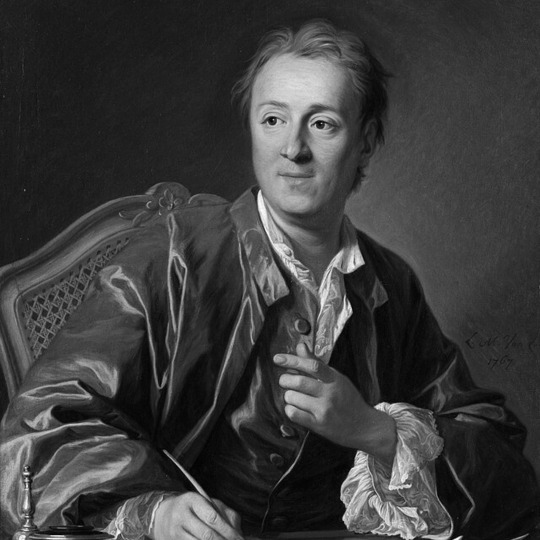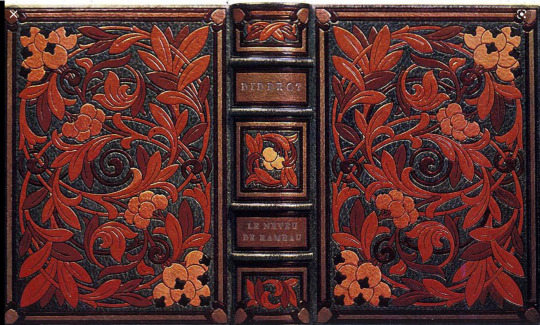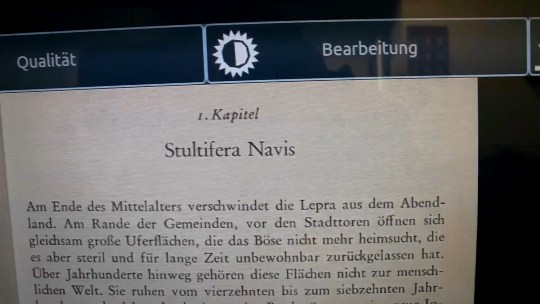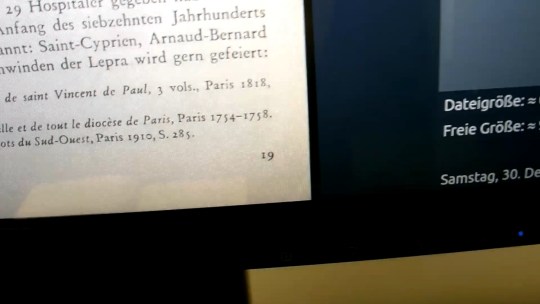#rameau's nephew
Text
ME: What have you been doing?
HIM: What you, I, and all the other do–some good, some bad–and nothing. Then when I was hungry, I ate when I had a chance. After eating, I was thirsty and I drank sometimes. However, I grew a beard, and when that came, I shaved it off.
1 note
·
View note
Text

“We swallow greedily any lie that flatters us, but we sip only little by little at a truth we find bitter.”
— Denis Diderot, “Rameau's Nephew”
#denis diderot#literature#lit#literature lover#literature quote#literature quotes#french literature#philosophy#philosophical#philosopher#philosophers#philosophy of life#philosophy quotes#french philosophy#quote#quotes#excerpts#excerpt#quoteoftheday#booklover#book#bookworm#books#book quotes#book quotations
66 notes
·
View notes
Text
Madame Putiphar Readalong. Book Two, Chapter XXVI, Part One.:
Including:
Architecture terms!
sexy mandolin playing and foot kissing
Borel’s version of Like a Virgin!
a great idea for art analysis and sadly ends on Orientalism
endless cultural references, -i didn't cover them all, I didn't even mention Borromini my beloved- and endless asterixes and parenthesis on my behalf :P

A Mermaid on a Dolphin's Back. Illustrated by John Gilbert Engraved by the Dalziel Brothers.
Let’s get the worst out of the way shall we? We have had various chapters sans big interventions by the narrator, here we have a pretty big, essaistic one. The questions Pétrus tackles in it is a fascinating one. Why is official art of a certain time period like it is, and what does it tell us about the ruling classes? (more concretely, why is Rococo art influenced by """The Orient""")
Like Rousseau* before him, Borel doesn't separate the artform from the power it represents (something we invariably see brought up in pop culture/divulgation discussions on Asian, Egyptian, or Precolumbine art and architecture) but we rarely see this same scrutiny applied to Greek temples, or European Palaces (yes, I have a specific and relatively recent documentary in mind where the presenter was wanking hard at the enlightened beauties of ancient Greece and early modern Europe. Then we got to the Mexica chapter,,,, the focus was obviously put on Human Sacrifice-someone was in a bad need of reading Montaigne’s des cannibales, there WAS human sacrifice with religious and political aims in Europe at the time- the presenter argued that the intrinsic, racialized thirst for blood of the ancient Mexica lived on in Mexico today, and as an example our very bright presenter showed an audience enjoying.... a corrida.......... a Spanish import.)
*[I cannot find the original Rousseau quote, only how Kant paraphrases it in Critique of Judgement: “If someone asks me if I find the castle before my eyes beautiful I can surely reply: (...) like Rousseau, declaim(ing) against the vanity of the great ones who misspend the people’s sweat in such superfluous things. (...)”]
So, the problem at hand -how art voices the intentions/ideologies of those in power-, is interesting and legitimate. However, the complex, hard to pin down Borelesian Narrator, reaches some pretty fallacious and biased conclusions (what is this narrator like? Is it like Diderot’s stand in, the “je” in Rameau’s Nephew? a Diderot stand in, but also evidently portrayed by Denis as a classist, bland bonpensant (for example when the Nephew, who is usually the venal, cynical, sexist and more importantly, of a lower class character, says something “correct”, the character labelled as “je” condescends to him: “you don’t know how right you are!” the nephew bitterly replies, “yeah, you Philosophers think we (aka, the people) are correct only by accident!” Diderot makes the narrating je look and sound like him, and share some of his positive qualities, but it also voices flaws Diderot saw in himself, becoming a kind of self parody, and parody of the figure of the Philosopher as a whole. Borel’s narrator is contradictory, some of his views change from chapter to chapter, and his emphasis on chastity and religion for example do not seem consistent with views expressed elsewhere-> @sainteverge brought up the tale Medianoche, where the heroine is a Diderot reader while her father is a repressive religious fanatic, and the portrayal of Dillon and the dark priest in La caverne d''Arcueils hardly seem like creatures a catholic fanatic would come up with...)
So, what are the causes of orientalism in 1700’s France? The French aristocracy was as soft and decadent, and as autocratic as “the orientals”, that’s what made them interested in their art (the main problem here is that Borel does not distinguish between the diverse cultures and social strata that form the pot-pourri the Europeans melded into a monolith they call(ed) the Orient. Borel doesn’t have in mind the arts of the nomads of the Mongolian steppes for example. He has a very specific artstyle in mind, and his thesis wouldn’t have been that insane if he had not implied there is an “oriental” nature, like he wouldn’t speak of an "European" nature since he percieves the nations conforming europe as pretty diverse surely.... and if he had specified which strata of the cultures he had in mind he’s speaking of. If he had said, the autocrats here enjoyed the art of the autocrats over there, because it is an art form that both utilizes slave force to be crafted and expresses that way of government, which is the core of the idea he seems to be proposing, I could have agreed with him.) He does this instead:
“The limpness, the pleasures, the incest, the polygamy, the pederasty**, the joy, the no longer chivalrous but rather Moorish gallantry; the slavery and finally the lack of care for slavery, had assimilated two populations that are so different in other points. Up to Pharaoh who had his favourite sultana, his Parc-aux-Cerfs, his lettres-de-cachet, just as Mustapha had his harem and his cords.
The Christian dogma which had rehabilitated Aesop was destroyed. Hercules and Venus, incarnating physical strength and beauty, were the only objects of worship. No more melancholy, no more chastity, no more modesty, no more meditation, no more reverie; nothing great, deep, sad, sublime! Eternal contemplation of God’s splendour, ridiculous! Instead, Muhammad and his joy, Muhammad and his sensuality, Muhammad and his houris.
Indeed pure Islam reigned: in point of fact, under these wigs and baskets one was as muslim as under a turban and a basquine.”
(tr. @sainteverge )
The islamophobia is patent, the presentation of Christian culture (another monolith) as superior too. Is this supposed to be ironic? I cannot tell.
** (as everyone reading this surely knows, the term pederasty in the french 19th c included sexual attraction between men of the same age) I think it’s important to note that Borel figures in the index of pederasts of the French police -an index of people being surveiled for being sodomites, who curiously where also “loud and turbulent” republicans (as michael blix defines it, thanks cam for sharing that.)
After this thoroughly unpleasant paragraph, Borel returns to the events of the story. He focuses on the effect the legitimately intoxicating and seductive view of Pompadour playing her mandolin has on Patrick. The ambiance has the desired effect on Patrick’s still innocent soul, overcome with doubt and admiration, he plunges to Pompadour’s feet and kisses her soles. Her eyes fall on him from the heights of her nonchalance.
Then we get what Like a Virgin would have sounded like if Borel had written it:
“A suave feeling, of which she had lost the memory and which for that reason seemed as new to her as the first pulse of love in a young girl’s heart, was moistening her decrepit soul. Her body, worn out by debauchery, could usually not even be titillated by pleasure anymore, and yet it swooned before the chaste touch of a mouth placed on her foot.”
(tr. By sainteverge)
(also I was exited to see Borel mentioning Philomela, but sadly not linked to Deborah as I had supposed in an earlier chapter, with the nightingale song, but curiously to Pompadour.... it’s an interesting choice since Philomela is clearly a victim and an avenging angel, none of which Pompadour is portrayed as, but it’s Patrick the innocent who calls her that, not the narrator, and he is refering to the singing)
Putiphar praises Patrick’s lyricism comparing him with gallant as Richelieu and poetic Dorat (writer of light, pleasing comedies, favoured by the mundanes in the VXIII th c), Patrick chooses more transgressive authors to correct her, “no, I’m actually like Young and Bayard” ->the latter a playright satirist of bourgeois mores. Putiphar enjoys conventional and conformist art, Patrick fights those choices with more transgressive authors. It’s like a miniature, low key battle of Hernani.
What follows is a key line about profit, money and the arts and voicing one’s opinions. Patrick obviously can earn very little by how he speaks. He is pretty fascinating here, definitely under Putiphar’s spell when he walks in, but he won’t flatter her like that other time or compromise his opinions when speaking to her... and that upsets her, there’s no way Patrick’s way of speaking will ever be lucrative for him, or help him ascend in court etc. He’s a terrible arriviste, Patrick replies he never had any intention of making his speech and feelings lucrative. That is such a slap in the face for Putiphar’s life credo...she’s kind of stunned that someone can think in ways so archaic (perhaps embodying what Borel mentioned above as Chivalry, Patrick is Quixotic) but more importantly, so radically disinterested, he wishes to transit the world speaking his mind and being true to who he is at all times. Putiphar changes the subject -because the conversation is turning too serious, and she has other projects in mind- and asks Patrick for a song from his land (Pat replies with a biblical citation) finally accepts to sing for her but he is afraid she won’t be able to appreciate it as Pompadour’s taste is too accustomed to Opera. In return Patrick asks her to finish her mandolin song (about Isis choosing between an blond or a brown haired man) When she finishes, she expresses the song couldn't be anymore perfect to which Pat, incapable of flattery at the present time, replies the song is “bland, mannered”, has “rather silly lyrics”(So Pomps is like, well if your taste is so refined, show me the best song from the best poet from your country, after telling him how if someone heard him his candid opinions would worsen matters for him -love of the arts in court and in Pompadour’s worldview is nothing more than political posturing and statements, you have to like what is in, and that’s that) Pompadour starts flirting more aggressively with Patrick, who jokingly refuses her. She starts writhing sexily, showing her legs and remarking on how hot she is, even while wearing a very light robe. Patrick' is's attitude is cold, but his eyes betray him and Putiphar notices it. Patrick is in a very enlightenment man way, having a struggle within him between passion and reason, appetite and duty. His senses responded to her invitations, yet his mind begged him to refuse them. (it’s an interesting change from their first meeting, where Patrick seemed to be implied to be giving her more than just a few kisses in her hands) Patrick is also thinking of Pompadour’s body in a patriarchal sexist way, he recovers his wits when remembering, not only Deborah, but Deborah as someone who was a virgin before him, Deborah as the standard of Virginity, Pompadour’s body is beautiful and enticing, but when he remembers that perhaps there wasn’t a single virgin spot in it for him to pose his lips, an iron curtain fell between him and her and only then he thought of Deborah, one who was only his. Gross, etc.
Yet Patrick is afraid he’ll succumb so he hilariously gets up and starts looking at Putiphar’s paintings and boiseries. She calls out from the sacrificial altar, begging him to return claiming he owes her an irish song. So Patrick returns and plays what seems like the longest, least sexy irish balad he could think of. Yet Putiphar is in ecstasy while listening, looks at him both like a mother and a lover proud of her choice. When the song is (finally) over Pompadour straight up poses Patrick’s hands on her heaving breasts. (in a quasi “frenetic” way)(since the chapter touched the arts in a romantic/classicist way, the word frenetic seems loaded) Pompadour cannot praise him in any better way than telling him he sounds like a neapolitan. Patrick of course corrects her telling her that the Irish have always been great at song. She insults the English language thinking that would please him, she does this shrewdly, since “all loves are brothers and that a soul which trembles with enthusiasm is usually an easy ship to catch.” (and Borel takes the chance to praise Gaelic -and Spanish comparing the sonorities of the two languages as majestic- and to complain about how English is advancing in Ireland while Gaelic declines) She asks Patrick to translate his song, is it a love song? She coyly asks? Is it about a cold lover who disdains an unrequited woman?
Is Putiphar right? Is Pat such an easy prey? Will he bite the bait? Find out.... soon XD
( @sainteverge @counterwiddershins )
#madame putiphar#long post#text post#hats off to cam for translating this >_> irish ballads tarabiscoting#it has it all O_O
7 notes
·
View notes
Text

LE NEVEU DE RAMEAU (aka RAMEAU’S NEPHEW) by Denis Diderot. (Paris: Auguste Blaizot, 1924) Illustrated by Bernard Naudin. Art binding by Henri Marius Michel.
#beautiful books#book blog#books books books#book cover#books#vintage books#art binding#book binding
18 notes
·
View notes
Text
youtube
youtube
nam june's spirit was speaking to me (2020) by aki onda. the album cover is a photograph of nam june paik, during the filming of 'rameau's nephew by diderot (thanx to dennis young) by wilma schoen by michael snow, 1974.
song titled allorolla from the album, five a's, two c's, one d, one e, two h's, three i's, one k, three l's, one m, two n's, two o's, one s, one t, one w (2008) by michael snow, aki onda and alan nicht.
5 notes
·
View notes
Text
Well-being: how to make a child sleep? Discover the 5 easy-to-apply tips from a specialist
Well-being: how to make a child sleep? Discover the 5 easy-to-apply tips from a specialist
With the approach of the All Saints holidays, the question of sleep in children is very important. Whether it’s your child, nephew, niece, godson or grandchild, Laurence Rameau, early childhood specialist, explains how to put them to bed earlier.
Falling asleep in children remains a real challenge for parents and grandparents alike. If some immerse themselves in the arms of Morpheus as soon as…

View On WordPress
0 notes
Text
From Diderot's Rameau's Nephew, quoted in James Wood's How Fiction Works:
"I would like to be somebody else...a man of genius...I am mediocre and angry."
I, too, am mediocre and angry.
2 notes
·
View notes
Quote
One swallows the lie that flatters, but sips the bitter truth drop by drop.
Denis Diderot, Rameau's Nephew / D'Alembert's Dream
15 notes
·
View notes
Quote
The paradox is that by attempting to salvage Diogenes for the Enlightenment, the philosophes unwittingly implicated Cynicism in the failure of the Enlightenment to make good its promise to create a more just and free world, thereby paving the way for the transformation of the concept into its modern counterpart, our lowercase cynicism. In other words, by reviving Cynicism in a purified form, the philosophes helped bring about a conceptual shift that nearly wrote the Cynic tradition out of existence. The attempt to demarcate a domain of pure, unalloyed Cynicisms is of course as old as Cynicism itself; several of our earliest sources, Epictetus and Julian most notably, do just that. But the distinction that informs contemporary usage, between the Cynic and his lowercase double, the Kyniker and Zyniker, is a product of modernity. The definition of cynicism as an attitude of disabused superiority has its roots in the ambiguous moral status ascribed to the ancient Cynics, but it emerges as a separate category, disengaged from its philosophical roots, only in the eighteenth century. Rameau's nephew still refers to Diogenes as the father of his own brand of cynicism; the Marquis de Sade no longer does. That this is so makes [Peter] Sloterdijk's intuitive interpretation of cynicism as the perverse product of the Enlightenment all the more astute. A study of the history of Cynicism reveals that Sloterdijk's philosophical argument about the perversion of Cynicism does in fact have a historical basis: it is in the eighteenth century, more precisely within the circle of French philosophes and in the context of debates on what it means to enlighten the world, that cynicism emerges from the vestiges of Cynicism and all but eclipses the ancient, philosophical meaning of the term.
Louisa Shea, The Cynic Enlightenment: Diogenes in the Salon
#History of Philosophy#philosophy#the cynic enlightenment#louisa shea#peter sloterdijk#critique of cynical reason#french philosophy#philosophe#philosophes#salons#salon#history#french history#greek cynics#kynic#kynicism#Rameau's Nephew#diderot#marquis de sade#de sade#sade#sloterdijk#critical theory#enlightenment#diogenes
2 notes
·
View notes
Text


michel foucault, wahnsinn und gesellschaft, scann bookeye web zlb 123023 fail
#wahnsinn und gesellschaft#michel foucault#stultifera navis#bookeye#zlb#amerika-gedenkbibliothek#scann#fail#pressefreiheit#meinungsfreiheit#191216#corona#le neveu de rameau#denis diderot#wittgensteins neffe#thomas bernhard#rameau's nephew#kinski geisel#books
0 notes
Text
On avale à pleine gorgée le mensonge qui nous flatte, et l’on boit goutte à goutte une vérité qui nous est amère.
We swallow greedily any lie that flatters us, but we sip only little by little at a truth we find bitter.
Le Neveu de Rameau, D. Diderot
Rameau's Nephew, D. Diderot
#denis diderot#diderot#enlightenment#philosophie#philosophes#philosophy#french language#french quotes#french#langue française#français#littérature française#lumières#french literature#Rameau's Nephew#Le Neveu de Rameau
6 notes
·
View notes
Text
"Tout art d'imitation a son modèle dans la nature"
Diderot
1 note
·
View note
Text
Ok I just found this quote of Karl Marx roasting Janin. (context is, Janin wrote a sequel for the philosophical dialogue Rameau’s Nephew)(this is from a dedication note Marx wrote to Engels when gifting him the book)
“Janin deplores the lack of a moral argument in Diderot’s Rameau and he corrects this defect by way of his discovery that the Nephew’s perversity lies in the pain he feels for not having been born a gentilhomme. The kotzebueanian* trash with which he has smeared this angular stone is being represented in a melodramatic style in London at this precise time. The step from Diderot to Jules Janin illustrates, I suppose, what physiologists denominate “regressive metamorphosis”. There lies the French mentality prior to the revolution and during Louis Philippe.”
*i believe he refers to August von Kotzebue(?) a playwright who was apparently considered really bad???? But i have no idea
#my translations#janin tag#janin would have loved disney villains prequels and origin stories#I can’t believe he made a melodrama out of a corrosive satire
7 notes
·
View notes
Link
Go check out my new video! It’s introspective and angsty and I talk about Plato and Wicked in the same sentence!
#philosophy#Eli Yurman#Youtube#video#plato#dialogue#socrates#Wicked#Broadway#theatre#diderot#Rameau's Nephew#Symposium#Pheadrus#Love
0 notes
Quote
No matter what the weather, rain or shine, it’s my habit every evening at about five o’clock to take a walk around the Palais Royal. I’m the one you see dreaming on the bench in Argenson’s Alley, always alone. I talk to myself about politics, love, taste, or philosophy. I let my spirit roam at will, allowing it to follow the first idea, wise or foolish, which presents itself, just as we see our dissolute young men on Foy’s Walk following in the footsteps of a prostitute with a smiling face, an inviting air, and a turned-up nose, then leaving her for another, going after all of them and sticking to none. For me, my thoughts are my prostitutes.
Denis Diderot (1769) Le Neveu De Rameau (Rameau’s Nephew)
#denis diderot#Diderot#rameau's nephew#rameau#18th century france#18th century#1700s#palais royal#satire#philosophy#philosophe#paris
35 notes
·
View notes
Text
Well-being: how to make a child sleep? Discover the 5 easy-to-apply tips from a specialist
Well-being: how to make a child sleep? Discover the 5 easy-to-apply tips from a specialist
With the approach of the All Saints holidays, the question of sleep in children is very important. Whether it’s your child, nephew, niece, godchild or grandchild, Laurence Rameau, early childhood specialist, explains how to put them to bed earlier.
Falling asleep in children remains a real challenge for parents and grandparents alike. If some immerse themselves in the arms of Morpheus as soon as…

View On WordPress
0 notes